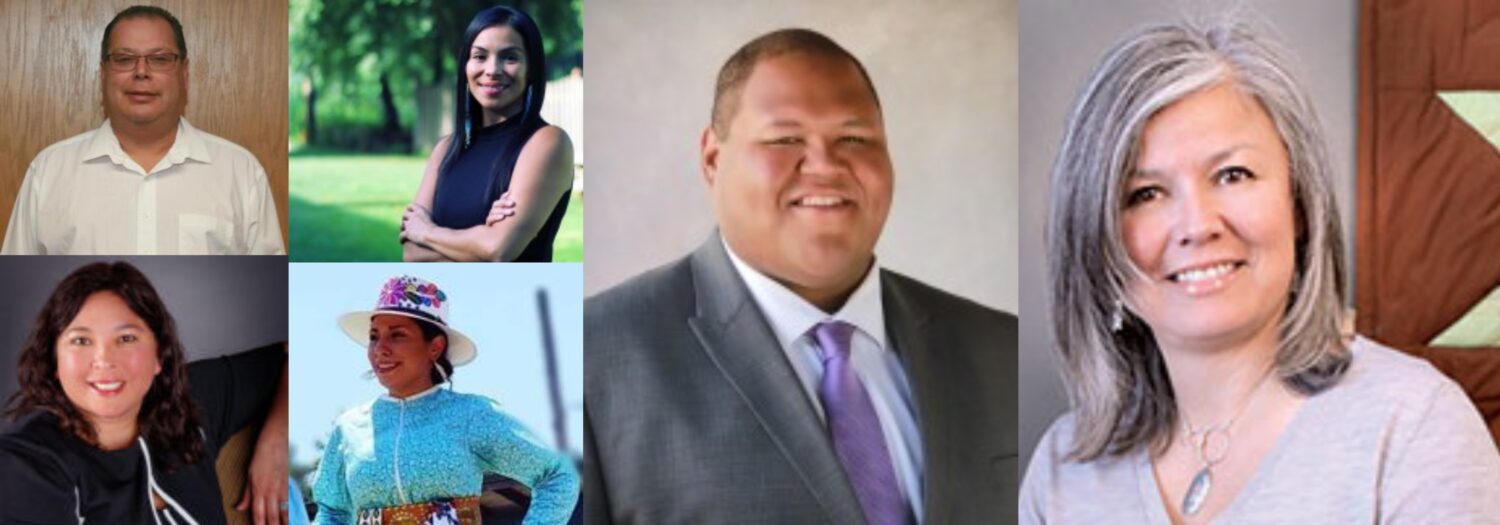
This is the fifth of a five-part series. Part One is here, Part Two is here, Part Three is here and Part Four is here.
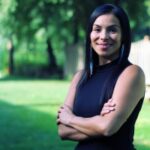 Alebra Metoxen is Indian Child Welfare Training Supervisor for the Oneida Nation, where she has served in a variety of capacities over 25 years. She’s served as a family services worker, parent program coordinator, Indian Child Welfare case manager and social worker and family services supervisor. She is also an adjunct trainer at the UW-Madison, in the Wisconsin Child Welfare Professional Development System teaching case practice with American Indian Tribes to county child welfare staff. She earned a bachelor’s degree in social work at UW-Green Bay and a master’s degree at UW-Madison.
Alebra Metoxen is Indian Child Welfare Training Supervisor for the Oneida Nation, where she has served in a variety of capacities over 25 years. She’s served as a family services worker, parent program coordinator, Indian Child Welfare case manager and social worker and family services supervisor. She is also an adjunct trainer at the UW-Madison, in the Wisconsin Child Welfare Professional Development System teaching case practice with American Indian Tribes to county child welfare staff. She earned a bachelor’s degree in social work at UW-Green Bay and a master’s degree at UW-Madison.
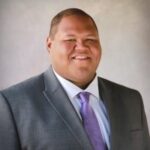 Dr. Marcus Lewis is the founder and owner of Key Change Consulting, an enrolled member of the Ho-Chunk Nation, and an African American descendant of Cameroonian and Bantu peoples. He has worked in diversity and equity for over 10 years. As a nationally trained Seeking Educational Equity and Diversity (SEED) facilitator and education leader, Dr. Lewis has dedicated his career to working in higher education administration, Native American education, and inclusive advocacy. He has presented at the national, state, and local levels about educational equity, social justice, and Native American education. He has bachelor’s and master’s degrees in music from UW-Stevens Point and the University of Nevada-Las Vegas, and a doctoral degree in education from UW-Stout.
Dr. Marcus Lewis is the founder and owner of Key Change Consulting, an enrolled member of the Ho-Chunk Nation, and an African American descendant of Cameroonian and Bantu peoples. He has worked in diversity and equity for over 10 years. As a nationally trained Seeking Educational Equity and Diversity (SEED) facilitator and education leader, Dr. Lewis has dedicated his career to working in higher education administration, Native American education, and inclusive advocacy. He has presented at the national, state, and local levels about educational equity, social justice, and Native American education. He has bachelor’s and master’s degrees in music from UW-Stevens Point and the University of Nevada-Las Vegas, and a doctoral degree in education from UW-Stout.
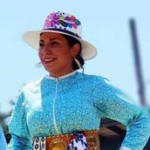 Micaela Salas Livingston is tribal liaison with Madison College, where she provides leadership, guidance, and support for Native and Indigenous initiatives, organizations, and programs both externally and internally. Originally from Bad River, she earned a partial scholarship to the UW-Madison in 2008, but had to work two jobs to afford living expenses. That experience led her, along with James Flores, to push the university to offer free tuition to Indigenous students, a policy the university adopted earlier this year.
Micaela Salas Livingston is tribal liaison with Madison College, where she provides leadership, guidance, and support for Native and Indigenous initiatives, organizations, and programs both externally and internally. Originally from Bad River, she earned a partial scholarship to the UW-Madison in 2008, but had to work two jobs to afford living expenses. That experience led her, along with James Flores, to push the university to offer free tuition to Indigenous students, a policy the university adopted earlier this year.
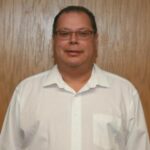 Gary Smith is Chief Judge for the Lac du Flambeau Band of Lake Superior Chippewa, and president of both the Lac du Flambeau School Board and the Lakeland Union High School Board. He is also the coordinator for the band’s Wellness Court, which assists and provides support for people with substance abuse issues. He serves on the Wisconsin Native American Judicial Committee. He is an alum of UW-Oshkosh.
Gary Smith is Chief Judge for the Lac du Flambeau Band of Lake Superior Chippewa, and president of both the Lac du Flambeau School Board and the Lakeland Union High School Board. He is also the coordinator for the band’s Wellness Court, which assists and provides support for people with substance abuse issues. He serves on the Wisconsin Native American Judicial Committee. He is an alum of UW-Oshkosh.
 Jacqueline Schram is director of public affairs and special assistant for Native American affairs at Marquette University. As co-advisor for the Native American Student Association, she aided the group in crafting Marquette’s Land and Water Acknowledgement, which recognizes the long history of Native people and nations that lived on and stewarded the land and water where the university now resides. She also staffs the Marquette Indigeneity Lab, an interdisciplinary research hub that promotes Marquette’s Indigenous undergraduate students’ research on topics that increase awareness and understanding of Indigenous history and culture in Milwaukee. She is a 2018 recipient of the university’s Excellence in Diversity and Inclusion Staff Award. She holds bachelor’s degrees from the University of Manitoba and UW-Milwaukee, and a master’s degree in anthropology from UW-Milwaukee.
Jacqueline Schram is director of public affairs and special assistant for Native American affairs at Marquette University. As co-advisor for the Native American Student Association, she aided the group in crafting Marquette’s Land and Water Acknowledgement, which recognizes the long history of Native people and nations that lived on and stewarded the land and water where the university now resides. She also staffs the Marquette Indigeneity Lab, an interdisciplinary research hub that promotes Marquette’s Indigenous undergraduate students’ research on topics that increase awareness and understanding of Indigenous history and culture in Milwaukee. She is a 2018 recipient of the university’s Excellence in Diversity and Inclusion Staff Award. She holds bachelor’s degrees from the University of Manitoba and UW-Milwaukee, and a master’s degree in anthropology from UW-Milwaukee.
 Dr. Rachel Byington is tribal liaison for the Wisconsin Historical Society. She previously served as tribal youth and community liaison at Earth Partnership within the UW-Madison, where she started as an intern in 2014. Rachel is an enrolled citizen of the Choctaw Nation of Oklahoma. She holds a BS in Family, Consumer, and Community Education, and an American Indian Studies certificate, and a MS in Civil Society and Community Studies, all from the UW-Madison. She received her PhD in Civil Society and Community Studies in UW-Madison’s School of Human Ecology.
Dr. Rachel Byington is tribal liaison for the Wisconsin Historical Society. She previously served as tribal youth and community liaison at Earth Partnership within the UW-Madison, where she started as an intern in 2014. Rachel is an enrolled citizen of the Choctaw Nation of Oklahoma. She holds a BS in Family, Consumer, and Community Education, and an American Indian Studies certificate, and a MS in Civil Society and Community Studies, all from the UW-Madison. She received her PhD in Civil Society and Community Studies in UW-Madison’s School of Human Ecology.
Who’d we miss? Let us know who should be on next year’s list by emailing [email protected]!



